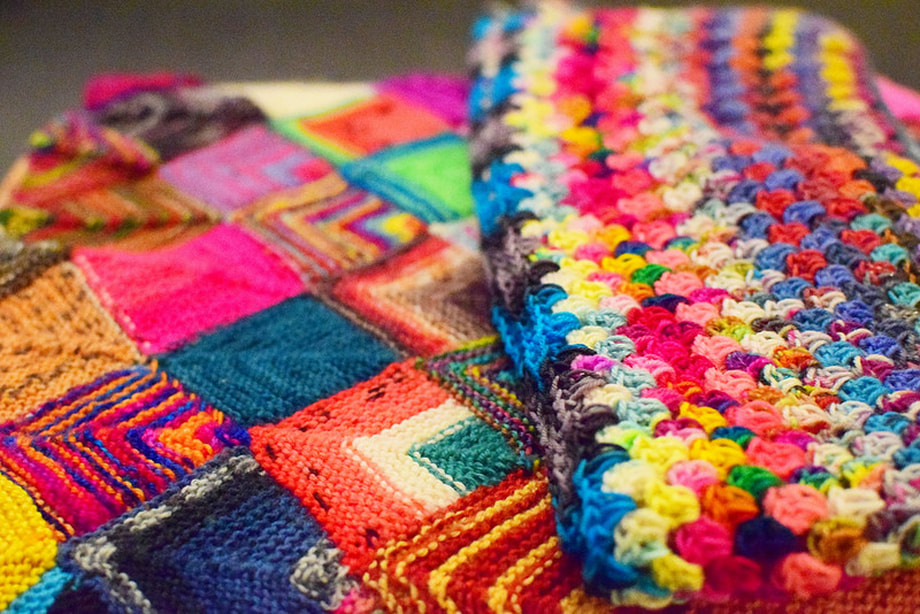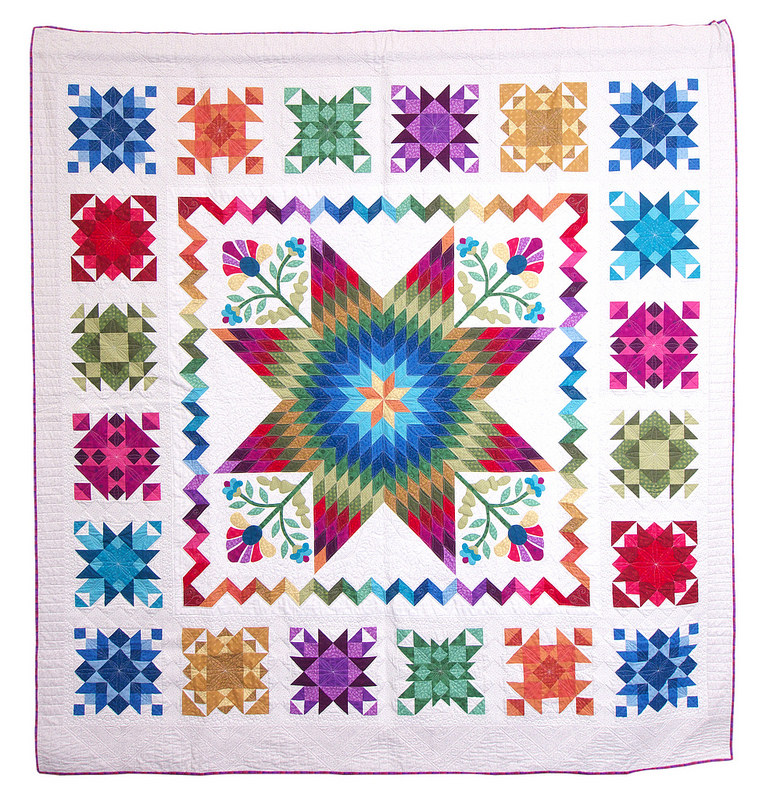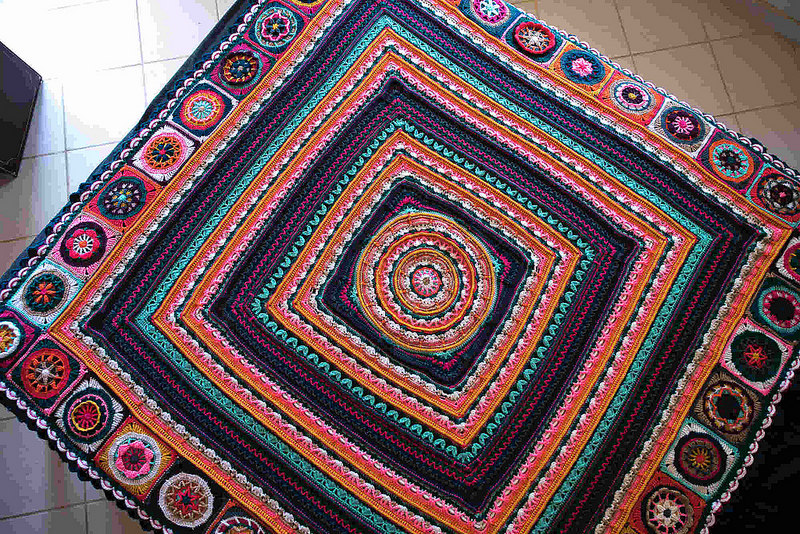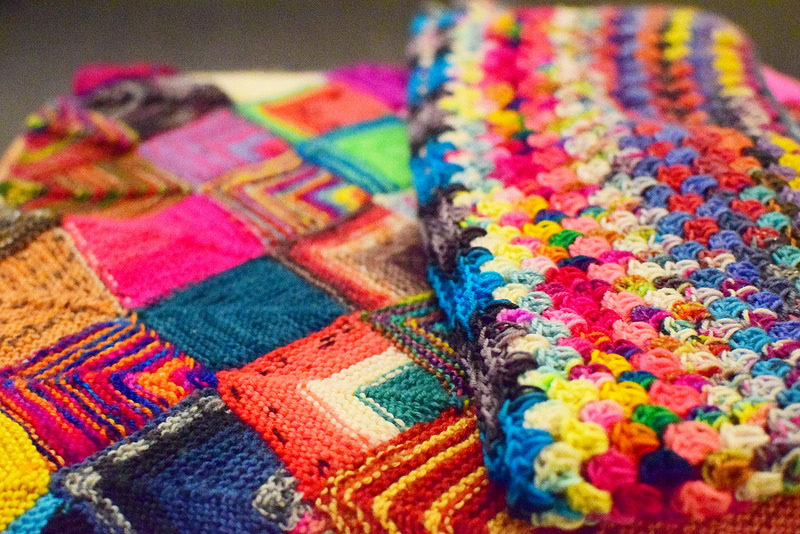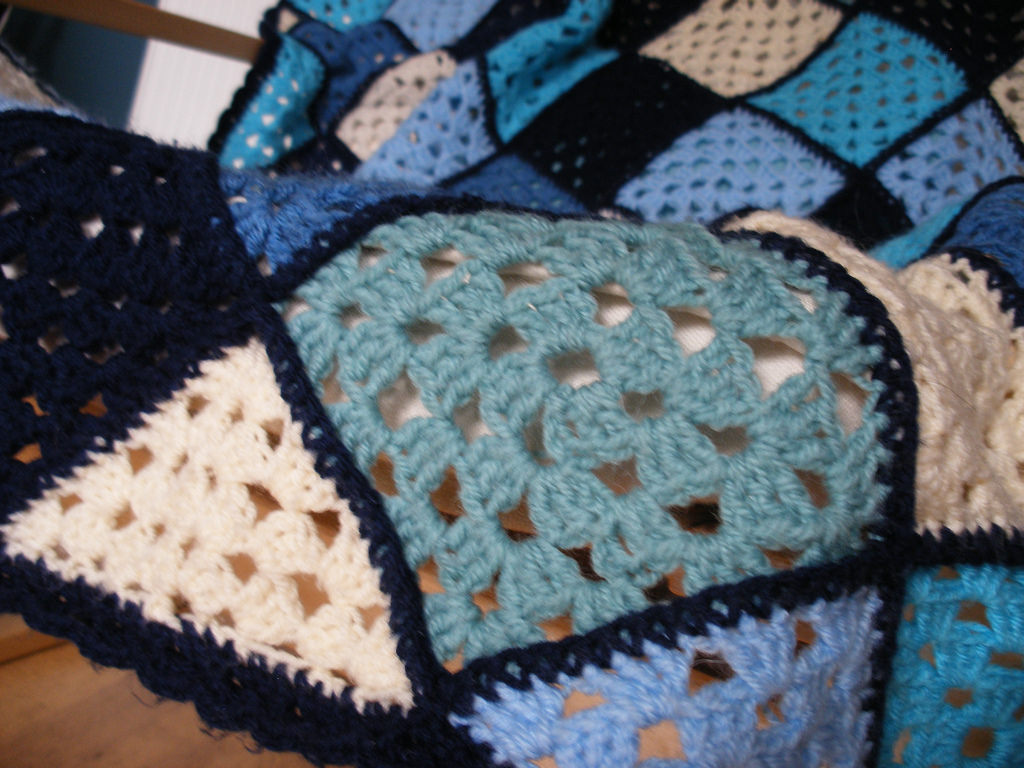Hands and Hope
2/15/2019
It is easy to think of an Ecological Civilization as a distant ideal, arrived at primarily through a changed way of thinking accompanied by wise public policies, international cooperation, and community development. But might knitting play a role? Or crocheting? Or felting? Or kneading bread? Might doing things by hand, carefully and lovingly, be one way of helping heal a broken world and participating in a larger cosmic dance? Renate Hiller, in the video below, makes the case. (JMcD)
And when we twist fibers into yarn we are actually creating a spiral. And the spiral is a cosmic gesture of creation. |
The human body is an instrument for the production of art in the life of the human soul. |
Transcript
I’m spinning wool with a stone spindle. This tool has been used probably for more than 30,000 years. And when we twist fibers into yarn we are actually creating a spiral. And the spiral is a cosmic gesture of creation.
When we look at our galaxy from outer space it is a spiral. And we find spirals in many, many places — in the plant world — on the back of our head we have a spiral. So, this is an activity that brings us closer to the cosmos, you could say. But at the same time we create something that is useful and beautiful because with the yarn that we have spun we can create sweaters, hats and mittens and scarves and so on.
To have the skill of knitting, to have the skill of crocheting, of felting, makes it possible for us not only to make something but it makes us skilled in general. The use of the hands is vital for the human being, for having flexibility, dexterity. In a way the entire human being is in the in the hands. Our destiny is written in the hand. And what do we do in our modern world with our hands? You know we move the mouse, we drive and so on. We feel plastic most of the time. The hands are relegated to very little that’s actually bringing dexterity to our times. So we have come ever more estranged from nature and from also what other human beings are doing. The whole social element comes into play as well because if I make something then I think ‘Hmmm, how was that yarn made?’
In the past there were all the professions of the shoemaker and the tailor and so on, and that’s also being lost. If you do practical work somewhere on the school grounds, there is practical work going on. The children will all go to that. They’re really drawn to that. They want to experience it and however the reality is that there’s less and less of that. In the home, you know you can use already bought vegetables, all chopped up and ready to eat. There is very little activity like kneading the bread, and you know children grasp first an item and then they grasp with their mind. So if they have very little to grasp other than plastic readymade toys then what their mind grasps is very little. The toy automatically moves and you know children can only be kind of astonished by that.
So though there is this loss of understanding the value of things, of the meaning of things, and in handwork, in transforming nature we also make something truly unique that we have made with our hands, stitch by stitch, that maybe we have chosen the yarn, we have even spun the yarn — even better, and that we have designed. And when I do that, I feel whole. I feel I am experiencing my inner core because it’s a meditative process. You have to find your way; you have to listen with your whole being. And that is the schooling that we all need today. Because we’re so egocentric and this makes us think of what is needed by something else. So we are in a way practicing empathy — empathy with the material, empathy with the design. I think this practicing of empathy that we do in the fiber crafts is paramount for being healing to our world. And it’s a service for the divine that we are surrounded by.
When we look at our galaxy from outer space it is a spiral. And we find spirals in many, many places — in the plant world — on the back of our head we have a spiral. So, this is an activity that brings us closer to the cosmos, you could say. But at the same time we create something that is useful and beautiful because with the yarn that we have spun we can create sweaters, hats and mittens and scarves and so on.
To have the skill of knitting, to have the skill of crocheting, of felting, makes it possible for us not only to make something but it makes us skilled in general. The use of the hands is vital for the human being, for having flexibility, dexterity. In a way the entire human being is in the in the hands. Our destiny is written in the hand. And what do we do in our modern world with our hands? You know we move the mouse, we drive and so on. We feel plastic most of the time. The hands are relegated to very little that’s actually bringing dexterity to our times. So we have come ever more estranged from nature and from also what other human beings are doing. The whole social element comes into play as well because if I make something then I think ‘Hmmm, how was that yarn made?’
In the past there were all the professions of the shoemaker and the tailor and so on, and that’s also being lost. If you do practical work somewhere on the school grounds, there is practical work going on. The children will all go to that. They’re really drawn to that. They want to experience it and however the reality is that there’s less and less of that. In the home, you know you can use already bought vegetables, all chopped up and ready to eat. There is very little activity like kneading the bread, and you know children grasp first an item and then they grasp with their mind. So if they have very little to grasp other than plastic readymade toys then what their mind grasps is very little. The toy automatically moves and you know children can only be kind of astonished by that.
So though there is this loss of understanding the value of things, of the meaning of things, and in handwork, in transforming nature we also make something truly unique that we have made with our hands, stitch by stitch, that maybe we have chosen the yarn, we have even spun the yarn — even better, and that we have designed. And when I do that, I feel whole. I feel I am experiencing my inner core because it’s a meditative process. You have to find your way; you have to listen with your whole being. And that is the schooling that we all need today. Because we’re so egocentric and this makes us think of what is needed by something else. So we are in a way practicing empathy — empathy with the material, empathy with the design. I think this practicing of empathy that we do in the fiber crafts is paramount for being healing to our world. And it’s a service for the divine that we are surrounded by.
